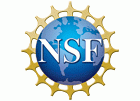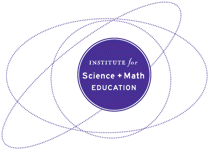What is meant by engaging youth in scientific modeling?

Why It Matters To You
- Teachers should regularly engage students in building, revising and evaluating multiple models. Students should learn to appreciate how models and modeling are central to science.
- District staff and PD providers should help teachers approach the revision of models of natural phenomena over time in their classrooms. Modeling is an iterative process of representation.
- School leaders should promote use of instructional materials that represent scientific models as having applications, limitations, and flaws.
What is the Issue?
A model is a representation of an idea or phenomenon that otherwise may be difficult to understand, depict, or directly observe. Models are integral to the practice of science and are used across many disciplines in a variety of ways. Scientists develop, test, refine, and use models in their research and to communicate their findings. Helping students develop and test models supports their learning and helps them understand important aspects of how science and engineering work.
Authors:
KERRI WINGERT, MARIAN WAGNER, ANDREW SHOUSE, STEVE SPODARYK & JEANNE CHOWNING
Reflection Questions
- How do you already employ modeling? What different kinds of models are used? What crossdiscipline connections do (or can) you make with modeling?
- Discuss the quote: “Essentially, all models are wrong, but some are useful.” — George E. P. Box
- Do your students construct, critique, and revise models? How can they share, compare, and refine their models? What can you learn from student-built models?
Things to Consider
- Scientific models are representations motivated by an interest in developing deeper knowledge and communicating about systems in the natural world. Scientific models can take many forms, including physical models, diagrams, computer-based models, mathematical models, and conceptual models. These different forms sometimes overlap and can be present within a single model.
- Models serve vital functions in scientific practice. Models can be used to explain complex data, build theories, and generate new hypotheses. Scientists also devise ways to test competing models and engage in arguments about them. New findings may support or contradict existing models. Models are created, revised, and sometimes rejected. Models are both explanatory and predictive. They are developed using existing data and also help drive future research. For example, models are used to predict outbreaks of diseases, climate change, and interactions within an ecosystem. Because models are approximations of real objects, phenomena, and systems, they are continually being refined as scientists gain new knowledge and data.
- Creating, refining & manipulating models can support student learning of scientific concepts. Students need experience creating their own conceptual models, practice revising and improving those models, and opportunities to reflect on the limitations of models that they develop. For example, students can develop their own model to explain the phases of the moon based on their ideas, make predictions based on those models, and test their models against observations. Students should refine their understanding and their models as new evidence becomes available in an investigation. They should also consider the strengths and limitations of models—to help avoid confusing models with the larger ideas they represent.
Attending to Equity
- Helping children see how their various cultural experiences are similar to what scientists do can help them connect with science. In their play, even very young children use models. Dolls, toy cars, and stuffed animals facilitate the pretend exploration of adult life. Bushes in a park become “forts” connected to a playground “town.”
- All children learn to use analogy in play and language. Everyday language is often rich in analogy and metaphor, which are effectively verbal models for explaining phenomena. These imaginative concepts allow children to explore worlds that are beyond their “real” experience—just as scientific models make aspects of a phenomenon visible that are otherwise difficult to examine.
Recommended Actions You Can Take
- Read about the modeling practice in the NRC Framework and this article with some classroom examples.
- Read this research brief on the shift from models as a way to display concepts to model-based reasoning.
- Watch an overview video on models & a deep dive on conceptual models.
- Investigate how modeling resembles aspects of the everyday life of your students and local communities.
- Modeling shifts the focus from memorizing facts to investigating phenomena. Consider how your students can engage in various facets of modeling in your current instruction. This overview might help you come up with ideas.
ALSO SEE STEM TEACHING TOOLS
STEM Teaching Tools content copyright 2014-22 UW Institute for Science + Math Education. All rights reserved.
This site is primarily funded by the National Science Foundation (NSF) through Award #1920249 (previously through Awards #1238253 and #1854059). Opinions expressed are not those of any funding agency.
Work is licensed under a Creative Commons Attribution-ShareAlike 4.0 Unported License. Others may adapt with attribution. Funded by the National Science Foundation (NSF). Opinions expressed are not those of any funding agency.


 Email Feedback
Email Feedback


